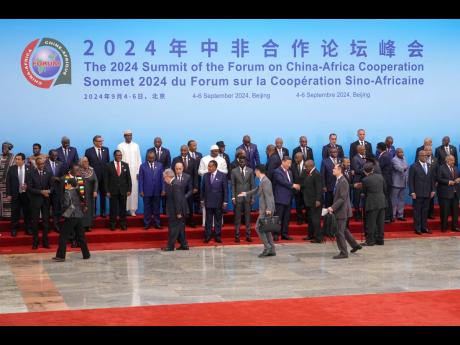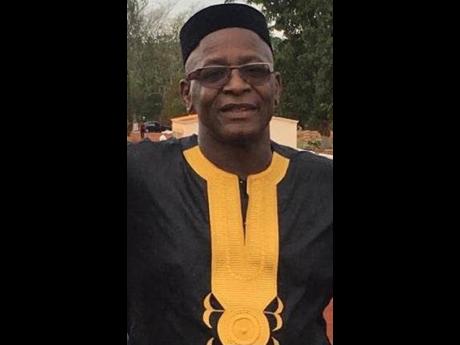Norris McDonald | BRICS, Russia, China and the reinvention of capitalism
China has pledged US$50 billion to help African countries develop their economies. This is one outcome of the 9th China-Africa Forum recently held in Beijing.
This money will be spent on poverty eradication programmes and methods of creating increased food security through rapid agricultural development. Among other areas will be investment in medical and health programmes to eradicate communicable disease.
Other steps to be taken include the development of a green economy, among other things.
These are bold steps that will further contribute to Africa’s modernisation and industrial development. It follows a long pattern of China’s investment in Africa that have seen the construction of over 10,000 kilometres of railways, vast road networks, digital fibre optical networks and hundreds of bridges and ports.
NEW DEVELOPMENT MODEL
This is a new development model that China and Russia are pursuing in the bilateral and multilateral relations with Africa.
Russia also recently concluded an economic summit with Africa. Major projects they are pursuing to help Africa is in nuclear power plants in some countries, strategic mineral production, satellite communication, technology, health education and scientific cooperation.
Russia has now emerged as the fourth largest economy in the world in terms of purchasing power parity. Despite years of economic sanctions, they now have vast surplus wealth, some of which is being used to help poverty-stricken African countries.
Both China and Russia have expanded cooperation in health to work towards eliminating communicable diseases. Right now, over 1.4 billion people in Africa are at risk from diseases which can be eradicated with investments in medicine, health facilities and medical personnel.
The rise of BRICS and the BRICS-owned New Development Bank (NDB) complements China’s Belt and Road Initiative (BRI).
The NDB offers the opportunity for low-interest loans, investment and economic development assistance. Therefore, while developing countries in Africa and elsewhere were forced to be bonded into the IMF-type debt and dependency, there is now a recognition that more positive alternatives exist.
BRICS’s National Development Bank is fast emerging as a low-cost alternative to finance sustainable economic development in African developing nations. And they are doing so without the ideological and political strings that are attached, as in the case of the IMF-type loans.
Egypt’s Suez Wind Energy project is one example of the NDB’s financing of sustainable economic development to improve the lives of people without harming the environment. This NDB project is aimed at making Egypt a regional green energy power.
The NDB is also financing 13 projects in South Africa at the national and community level and in coordination with the private sector.
The NDB has a capital base of US$100 billion and is one of the key instruments to influence global change that has emerged from the formation of BRICS.
Taken together, the impact of China and Russia bilateral relations with African countries and the role of BRICS and the BRI offer hope for funding economic developing in poor nations without the requirement of them literally selling their souls to the devil.
In the meantime, there is the upcoming BRICS Summit in October 2024, in Kazan Russia. Several African nations have already joined BRICS and more have applied for membership.
One big surprise at this Russian BRICS summit is the application by NATO member Türkiye to join. This is certainly a clear recognition that nations and people want a world of peace and international cooperation.
Finally, my friends, it must be stressed that the emergence of more assertive Pan-Africanist political leaders is pushing the ‘old-style’, neocolonialist minded African leaders to change or be swept aside.
Political pressure is being put on African leaders to come up with new solutions or be swept aside.
We have seen this in the political transformation taking place in South Africa, Burkina Faso, Mali and Niger. Recent unrests in Ghana, Kenya and Nigeria reflect this urgency for political change.
There are emerging trends, as political phenomena make it a lot easier for the African countries to cooperate with China, Russia and ignore political pressure from America.
REINVENTING CAPITALISM
In the final analysis, what may well be emerging is the reinvention of capitalism. That is to say, new solutions are being found within the context of the market economy, but the state sector is now leading this process of economic transformation.
This reinvention of capitalism is based upon the state sector playing an assertive role while allowing the business sector to thrive.
China as a communist country has emerged as a more successful capitalist country than the traditional “free marketeers”. They now call their political system “a socialist market economy”.
The role of governments through the planning of development projects; taxation policies; tax credits to local business firms; and social investments in housing, health education, agriculture science, technology and the digital economy are some of the ways in which capitalism can be reinvented.
The key issue is to explore how foreign economic assistance can be achieved without imposing unnecessary hardships on an already poverty-stricken, vulnerable population.
The social component is the active role of government in driving economic development in a situation where the people and society are actively involved in the decision-making process.
There is, therefore, a growing recognition that the urgent problems of hunger, debt, dependency, and environmental degradation cannot be solved by the existing backward, IMF-type dependent capitalism.
The question is how to reinvent the market mechanism and establish strong but flexible pragmatic controls so that they serve the interest of people and solve their problems, rather than the other way around.
What is clear is that poor nations cannot maintain their traditional role of propping up wealthy nations through international loansharking.
And Africa is clearly showing a way forward, which is certainly quite commendable.
This is a recognition that if these countries are to lift the people out of poverty, political and economic change, outside of the domain of imperialism, is the only way forward!
That is just ‘the bitta truth’!
Norris McDonald is an economic journalist, political analyst, and respiratory therapist. Send feedback to columns@gleanerjm.com and miaminorris@yahoo.com.


